Digital marketing for building materials presents several unique challenges for manufacturers in today’s online landscape. Building product manufacturers play a vital role in the construction products industry by supplying different building materials to builders, architects, and contractors, making an effective online marketing strategy essential for success. However, the building materials industry is highly competitive, with many players vying for contracts and bidding on projects.
Building materials marketing is a complex and highly competitive field that requires manufacturers to understand the needs and concerns of their customers, stay up-to-date with the latest building technologies and sustainability practices, distinguish their brands, and generate a consistent flow of leads. Manufacturers need to differentiate their brands from the rest of the market by emphasizing their unique features, reputation, and quality.
To succeed, building product manufacturers need to implement effective online marketing strategies that generate leads and improve their brand visibility. This guide will give a detailed overview of marketing strategies for building materials manufacturers. We will also discuss raising the roof with innovative marketing strategies for building product manufacturers.
Building Materials Marketing: Essential Digital Marketing Strategies for Manufacturers
Identifying Your Target Audience
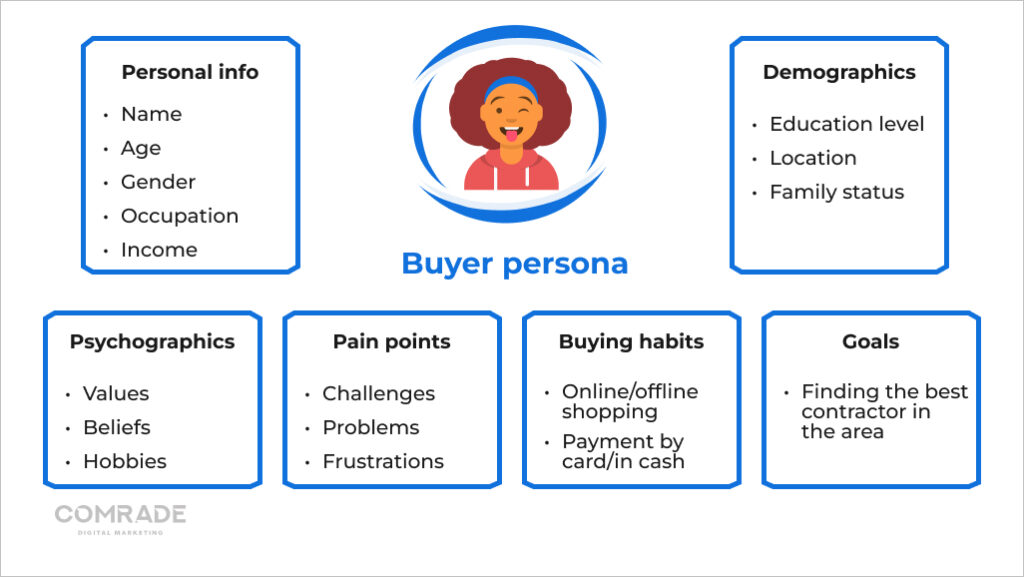
This process involves creating a target audience portrait or building materials buyer personas, a fictional representation of your ideal customer. To create a target audience portrait, you can conduct market research to gather information about your existing or ideal business customer demographics, psychographics, behaviors, and preferences. This information may include age, gender, income, location, education level, language, values, interests, pain points, buying habits, and more.
Once you have this information, you can create a buyer persona, a document describing your ideal customer in detail. Your buyer persona should include the following elements:
- Personal information: Name, age, gender, occupation, income, etc.
- Demographics: Education level, location, family status, etc.
- Psychographics: Values, beliefs, interests, hobbies, etc.
- Pain points: Challenges, problems, frustrations, etc., that your ideal customer is facing.
- Buying habits: How they find products/services, how they purchase, etc.
- Goals: What they hope to achieve, what they seek in your products/services, etc.
The benefits of creating a target audience portrait include the following:
- A better understanding of your ideal customer: A buyer persona helps you get a clear and detailed idea of the type of person most likely to buy your products/services.
- Improved digital marketing strategies: With a better understanding of your audience, you can create more effective marketing messages and campaigns that resonate with them.
- Higher ROI: When you know your ideal customer, you can focus your marketing efforts and budget on the channels and strategies most likely to reach and convert them.
- Increased customer loyalty: By catering to your ideal customer’s needs, you can build a stronger connection and loyalty.
- Competitive advantage: By targeting a specific audience and creating customized messages, you can stand out from your competitors and establish your brand as a go-to option for that audience.
SEO Strategies for Building Materials Manufacturers
By implementing the following search engine optimization (SEO) strategies as part of a comprehensive building materials marketing strategy, building material manufacturers can improve their online visibility and attract more potential business customers to their websites. It is important to remember that SEO is an ongoing process and requires consistent effort and monitoring to achieve the desired results.
Make a Building Material Manufacturer Keyword List
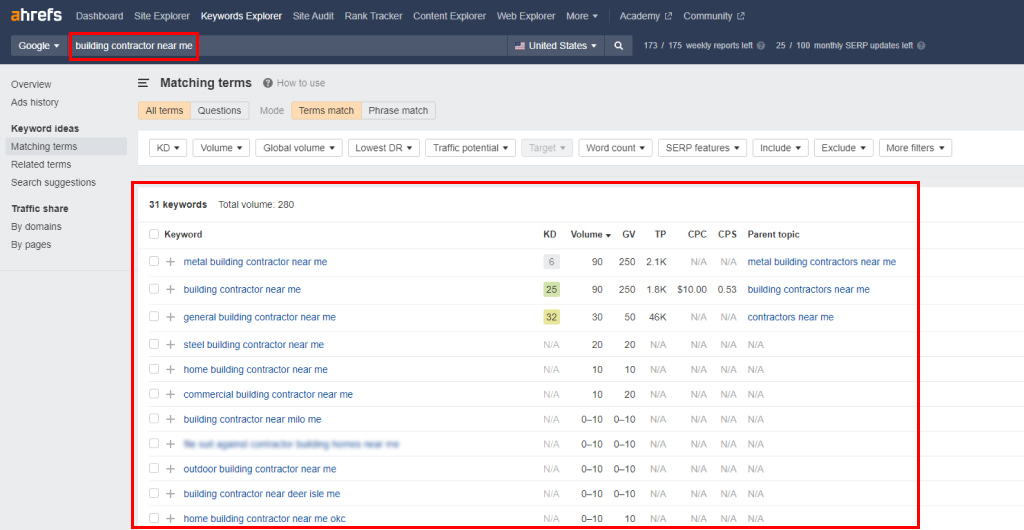
The first step in any effective SEO strategy is to research and identify the keywords potential customers use to search for building materials business. This will help the manufacturer to optimize their website content, product descriptions, and other pages to rank higher in search engine results pages (SERPs). The following process can be utilized for creating a keyword list:
- Brainstorming: The first step in creating a keyword list should be considering the most relevant terms or phrases you believe customers would use to search for your building products/services. Put yourself in their shoes and think of common phrases or terms they may use.
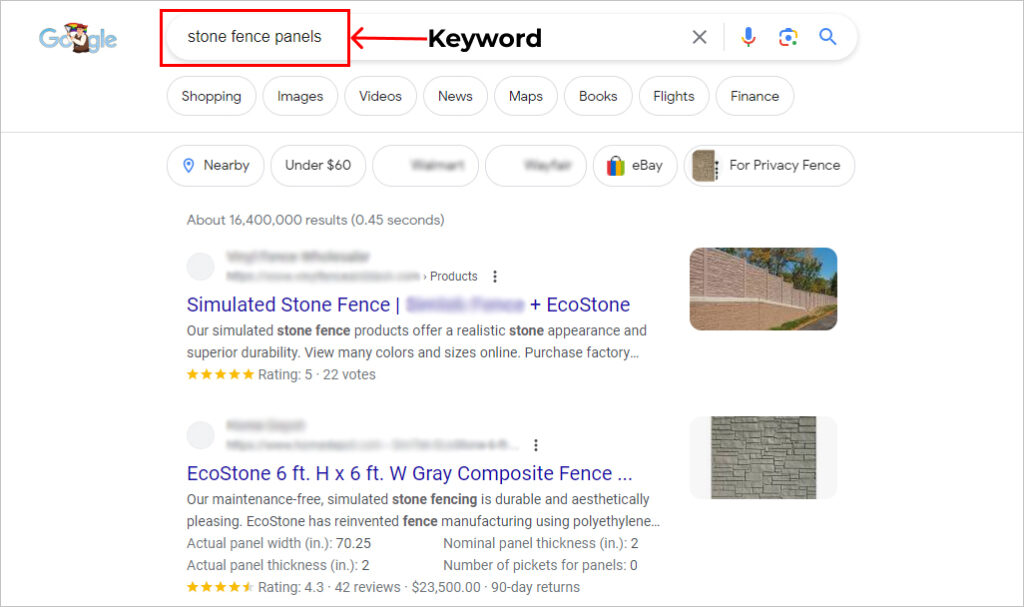
- Analyze competitors: Analyzing other building product manufacturer websites is also an excellent way to gather relevant keywords to add to your list. You can take the top competitors’ URLs and input them into a keyword tool provided by Google or Ahrefs. This will help you identify the top-ranking keywords generating high traffic.
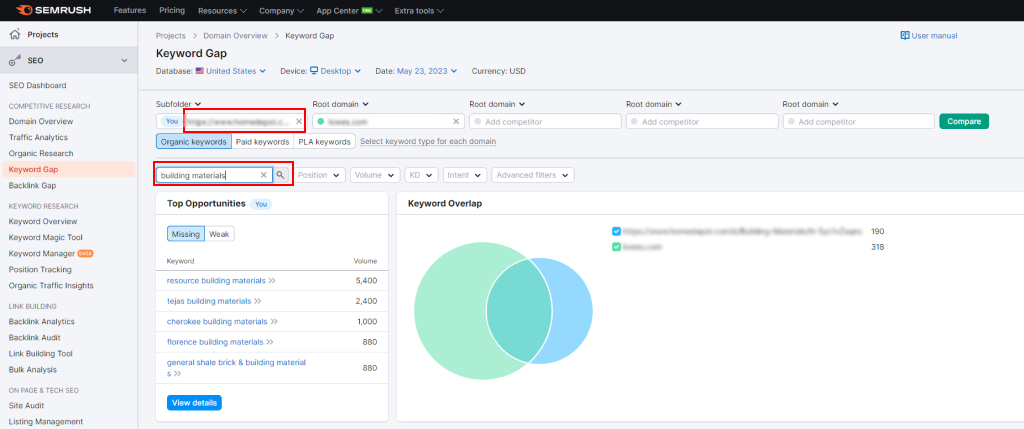
- Utilize a tool: As mentioned, you can use different SEO tools that help identify potential keywords. For instance, Google Keyword Planner, Ahrefs Keyword Explorer, or SEMrush’s Keyword Magic Tool. These digital tools provide an extensive list of keyword variations that best fit your potential buyer personas’ needs.
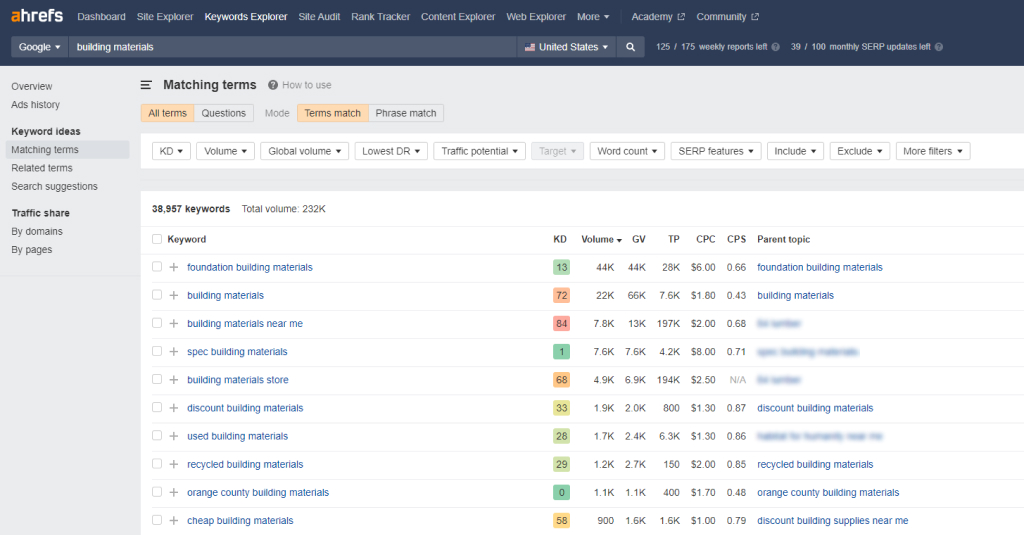
Building Products Digital Marketing: Creating an Effective Content Strategy
Building material manufacturers can benefit greatly from creating high-quality content that provides valuable information about their products, industry trends, and other related topics within the building materials market. Fresh and informative content can attract visitors to the website, increase user engagement, and help establish the building manufacturer as an industry expert. Some types of content that may fit the digital marketing strategy for building product manufacturers may include:
- Videos showcasing your products, installation processes, and interviews with experts and industry-related news.

- Blogs featuring articles related to the construction products marketing industry, how-to’s, DIY tips, and building materials company updates.

- Frequently asked questions (FAQs) answering a list of questions about your services is an excellent way to help business customers know more about your brand.
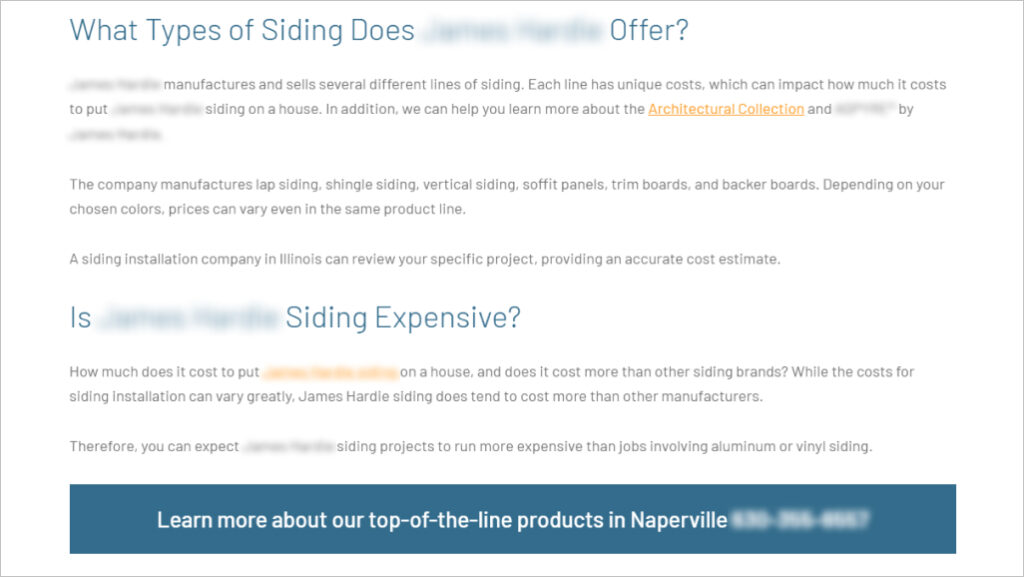
- Guides work as a sort of comprehensive handbook stating everything there is to know about your product/service, frequently encountered issues, how to solve them, and customer questions and answers.
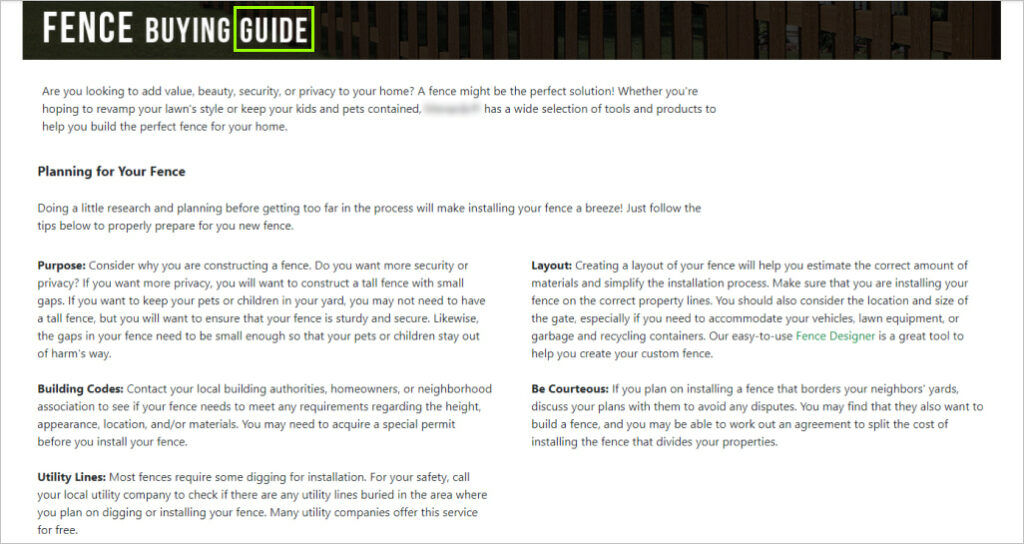
Promote Content on Your Website and Other Platforms
There are various platforms where manufacturers can promote their content. Some of them are:
- Guest blogging: This involves posting on other websites and blogs to promote content and can help manufacturers reach a wider audience. This way, they can create backlinks to their website and drive more traffic.
- Influencer marketing: This involves partnering with influencers in your industry or niche to promote your content. Influencers typically have a large following on social media platforms or blogs, making them perfect for promoting your content to their audience.
- Online communities and forums: These are another great option for promoting your content. By joining online communities and forums related to your industry or niche, you can connect with potential customers and share your content with them.
- Content syndication: This process involves republishing your content on other websites, blogs, or social media platforms. By syndicating your content, you can increase your reach and attract more organic search traffic to your website.
Local SEO
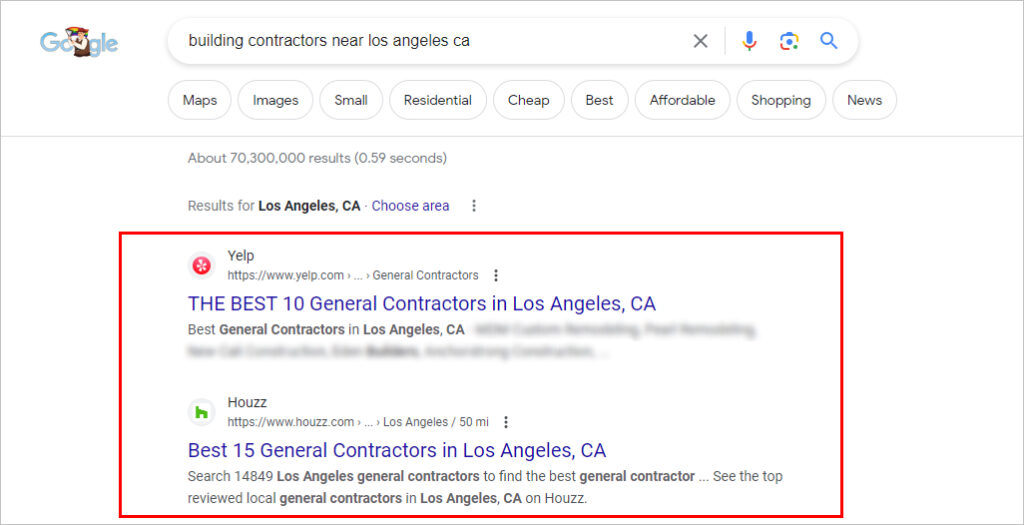
For building material manufacturers who serve local or regional markets, optimizing your website for local SEO is crucial as it helps you dominate your local market. Manufacturers can leverage the power of local SEO by creating Google My Business listings, optimizing their website for local keywords, and getting local backlinks. They can also create location-specific landing pages on their website to target customers in specific locations.
GMB Profile
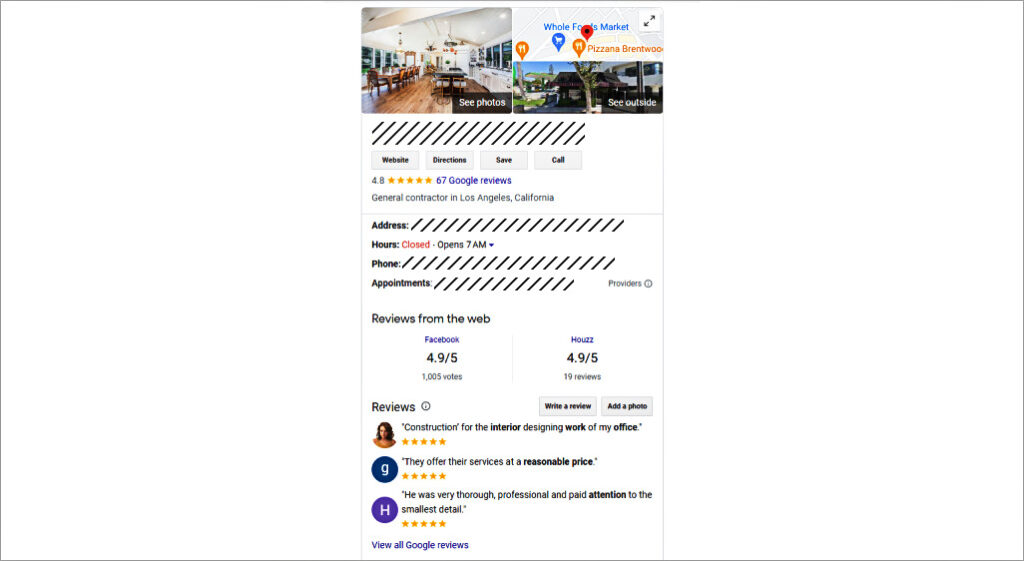
Google My Business (GMB) is a free tool that building material manufacturers can use to manage their online presence on Google. GMB profile optimization involves creating a business profile, adding accurate information, gathering customer reviews, and more.
Optimizing GMB profiles helps manufacturers improve their local search engine marketing rankings and attract more customers. It also allows them to showcase their products, services, and location to potential customers. Additionally, by responding to customer reviews, they can build a positive reputation and establish trust with their target audience.
PPC Marketing for Building Product Manufacturers
Each ad type has unique advantages tailored to the specific business needs and marketing goals of a building material company. We will explore them in detail below.
Local Service Ads
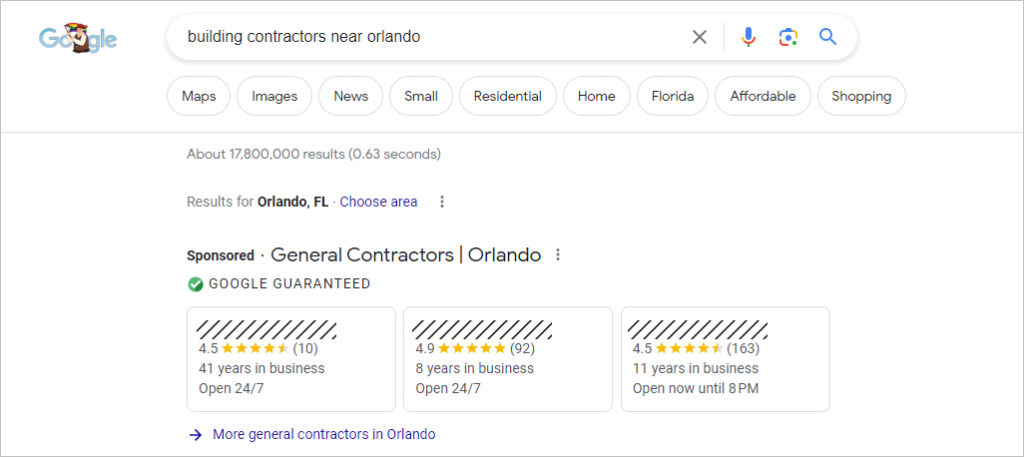
Local Service Ads are Pay-Per-Click (PPC) advertisements at the top of Google’s search engines. They are designed for local service providers, such as plumbers, electricians, or repair technicians, to help them get noticed more easily.
Advantages: Local Service Ads are prominent on Google’s search results page, with a distinctive green checkmark, and are instantly recognizable to users. They also include more relevant information, such as specific services offered, customer rating, and hours of operation, which can improve click-through rates and conversions.
Google Ads
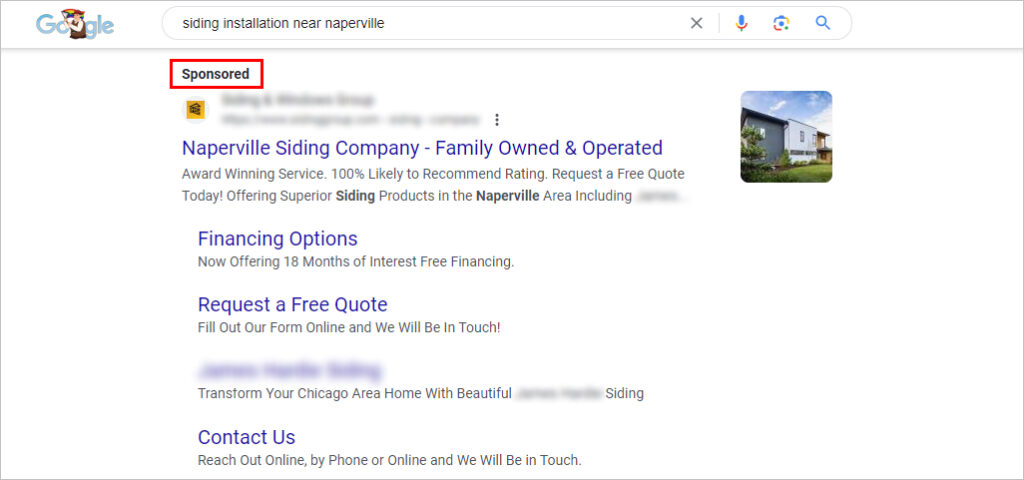
Google Ads is a platform for creating and managing PPC advertising campaigns that target specific keywords and user demographics. Advertisers can create text, image, or video ads and choose to display them on Google search results pages or other Google-owned properties.
Advantages: Google Ads offers flexible targeting options, including keyword matching, location, device type, audience demographics, and more. Advertisers can also choose from various bidding strategies to optimize their campaigns for conversions or clicks. Google Ads also provide detailed insights into campaign performance, allowing building materials manufacturers to make data-driven decisions and adjust their content marketing strategy accordingly.
Bing Places
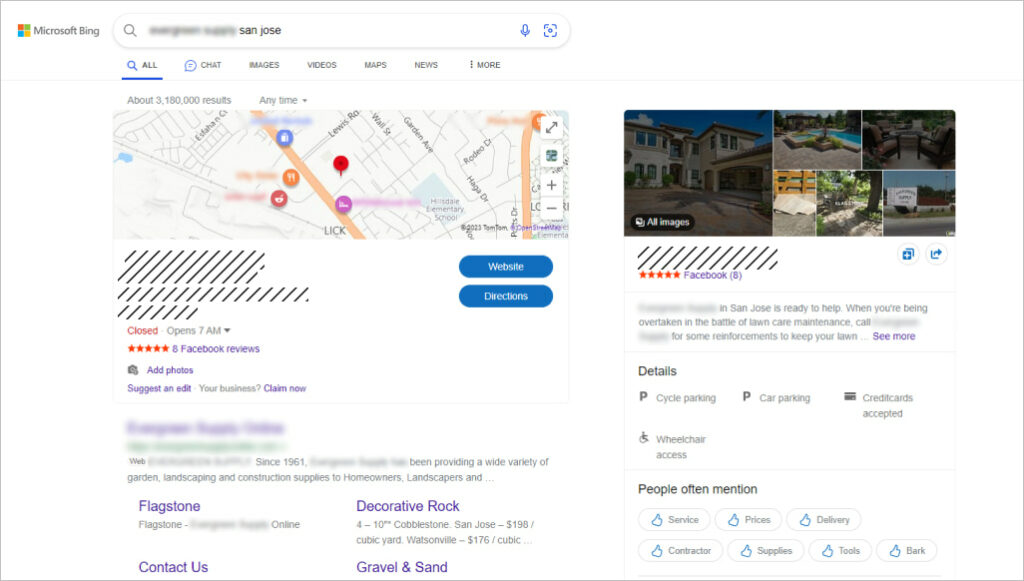
Bing Places is a business listing service for local businesses to create a profile page that displays basic information about their company, such as contact information, hours, and location.
Advantages: Bing Places is free to use and can help businesses improve their online presence by appearing in Bing’s search results and Maps. The service is also easy to set up and maintain. It has a user-friendly interface that allows businesses to update their information or add photos easily. Additionally, Bing Places integrates with other Microsoft services, such as Cortana or Outlook, to provide a more comprehensive experience for users.
Social Media Marketing Tactics to Capture Leads
With billions of daily active users, social media platforms offer plenty of opportunities to reach a large audience.
Here is how a manufacturer can use some of the most popular social media platforms for building material marketing.
Instagram: Building material manufacturers can showcase their products and processes on Instagram, using high-quality visuals to create an engaging feed. They can use hashtags to reach a wider audience and encourage followers to share their content. By adding a link to their website in their bio, they could capture leads by regularly publishing sponsored content associated with architecture and construction.
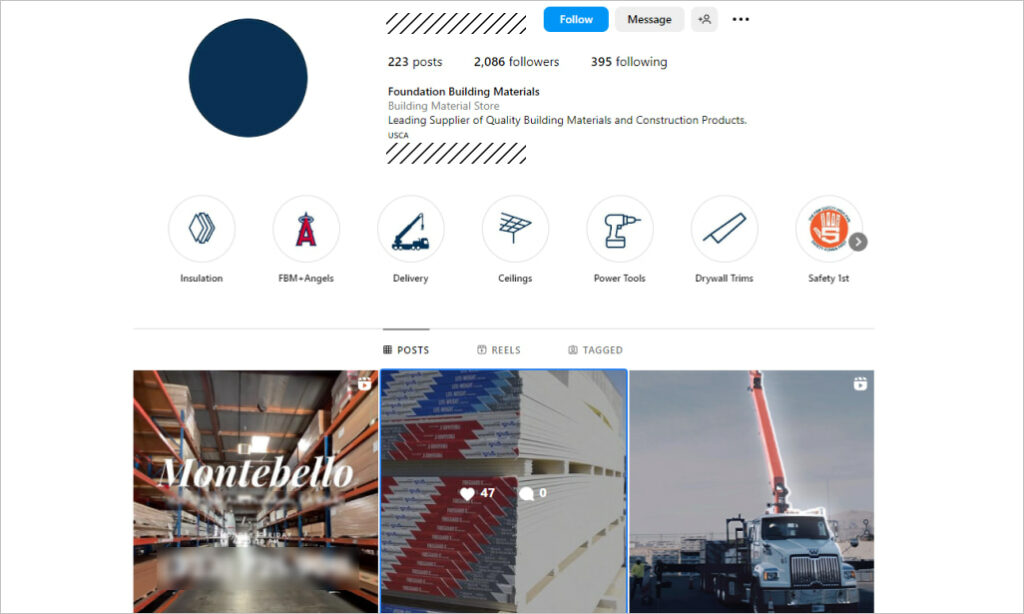
LinkedIn: Manufacturers can connect with architects, contractors, and other industry professionals. They can share informative articles and news about their company, engage with followers by answering questions and comments, and promote case studies and their own expertise. This way, they could create potential opportunities for networking and collaboration.
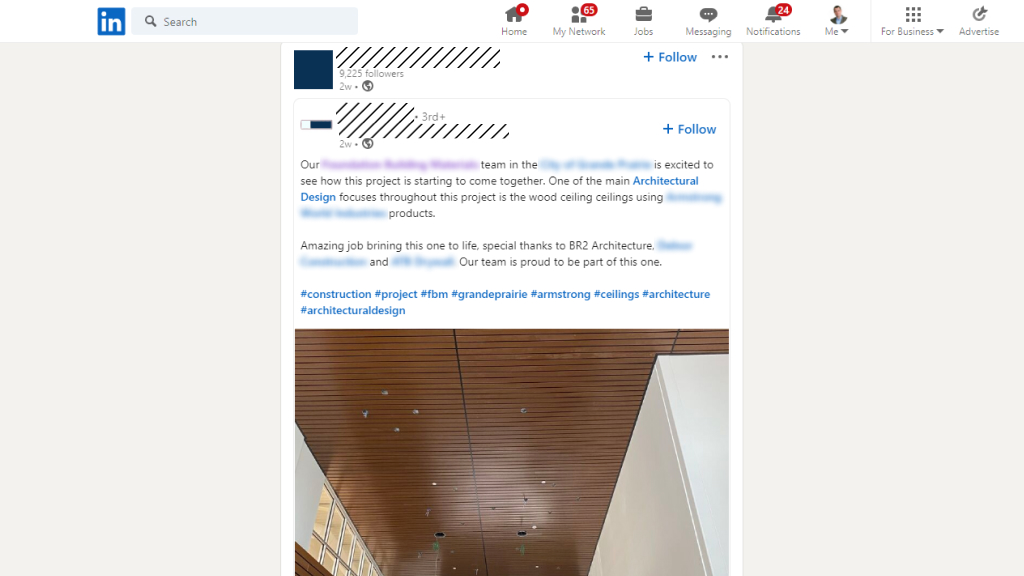
Facebook: Building materials manufacturers can leverage Facebook’s powerful ad-targeting capabilities to reach a targeted audience of potential buyers. Using Facebook lead generation ads, they can capture contact information from interested prospects who can fill out a lead form to learn more about their products and services.
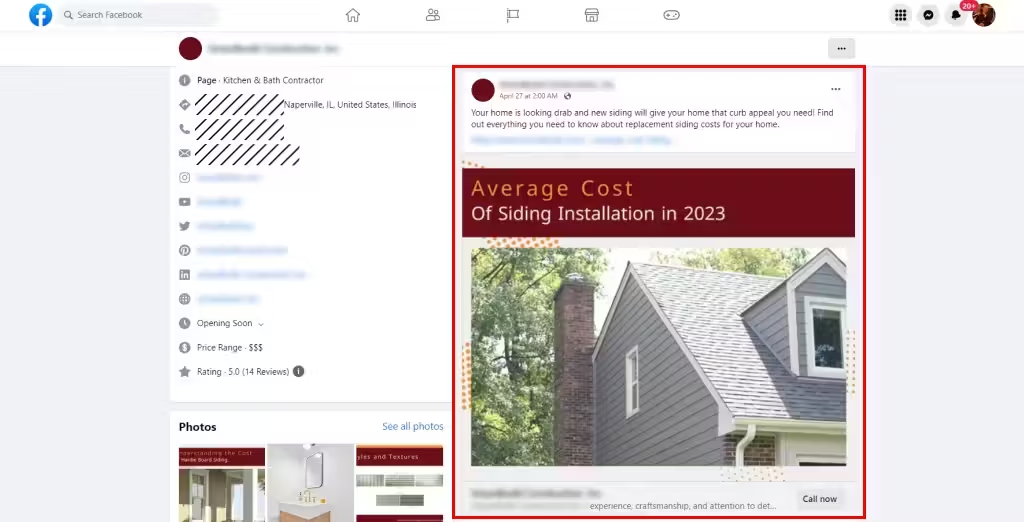
Twitter: Manufacturers can share quick updates, news, and announcements about their company, construction projects, or industry-related events. They can connect with and capture new leads by engaging with followers based on topics and hashtags related to construction, architecture, and manufacturing.
Benefits of Using Social Media for Building Manufacturers
- Advertising on social media platforms is cheaper than traditional advertising methods. Building manufacturers can reach a larger audience without spending too much money.
- Building materials marketing through social media allows manufacturers to increase brand awareness by creating targeted campaigns focusing on their products and services. Using social media, they can reach new customers and promote their brand to a broader audience.
- They can answer customer queries, respond to feedback, and offer customer support through social media platforms. It helps develop a strong relationship with customers and provides a platform for them to voice their opinions and concerns.
- Social media platforms capture data and analytics on user engagement. Building manufacturers can use this data to understand their customer’s preferences and behaviors better, providing valuable insights to improve their strategies.
Email Marketing Strategy as a Part of Construction Products Marketing
Email marketing is a crucial component of any online marketing strategy for construction product businesses and building materials manufacturers. First, it allows companies to reach a large audience easily and cost-effectively. By sending targeted emails to a mailing list, businesses can promote their products and services to interested parties without incurring the high costs associated with traditional advertising methods.
Secondly, email marketing for building materials allows businesses to personalize their messages to each recipient. This can increase open rates, click-through rates, and overall engagement with the email. By using customer data to tailor marketing messages to specific interests and preferences, businesses can create a more engaging and relevant experience for each recipient.
Thirdly, email marketing for building materials allows for the automation and tracking of campaigns. Businesses can use email automation to send follow-up or reminder emails for abandoned carts after a purchase. Businesses can track and analyze their email campaigns through metrics such as open rates, click-through rates, and conversions. This allows building materials companies to refine their email marketing strategy and improve their ROI.
Measuring the Success of Building Material Marketing Strategies
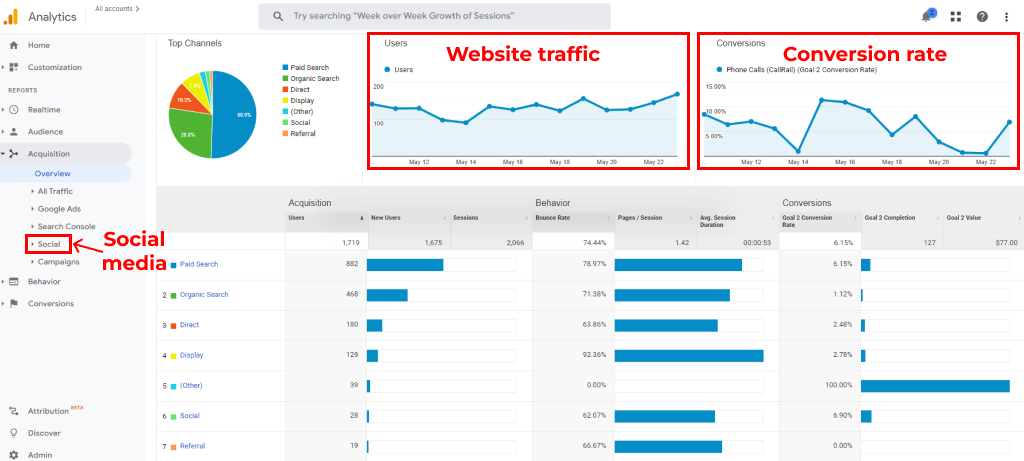
Tracking the performance of a building material marketing campaign over time can help identify trends and patterns that can improve future marketing strategies. It enables marketers to optimize their campaigns by allocating budgets to the most effective channels and targeting the audience based on their behavioral patterns. It also helps measure the overall impact of the building product manufacturers’ marketing strategy on the company’s revenue growth.
There are several ways to track the performance of a marketing campaign for building materials:
- Website traffic: Tracking the number of visitors, unique visitors, and page views on the website can provide insights into the effectiveness of the overall marketing strategy. It helps to determine if the website is attracting new visitors and if current visitors are engaging with the content.
- Conversion rate: This measures the percentage of website visitors who take a desired action, such as filling out a form, subscribing to a newsletter, or purchasing. A high conversion rate indicates the marketing strategy’s effectiveness and the messaging’s relevance to the target audience.
- Cost per acquisition (CPA): CPA refers to the cost of acquiring a new customer through advertising or other marketing efforts. Measuring CPA helps evaluate the effectiveness of advertising channels and determine which campaigns provide the best return on investment.
- Social media engagement: Tracking the number of likes, shares, comments, and followers on social media channels such as Facebook, Instagram, and Twitter can reveal if the marketing strategy engages the target audience.
- Return on investment (ROI): ROI measures the financial return of the marketing efforts in relation to the cost of the campaign. It helps to identify the most profitable marketing strategies and adjust the budget accordingly.

See how digital marketing strategy can help you stay ahead of the competition
Raising the Roof with Innovative Marketing Strategies for Building Product Manufacturers
Building product manufacturing constantly evolves, and innovative marketing strategies are becoming increasingly essential for companies wishing to thrive in the market. Raising the bar to stand out from the competition requires investing in creativity and out-of-the-box thinking. With the right approach, building product manufacturers can target their ideal audience and increase their brand awareness and, most importantly, revenue.
If you’re looking to take your building product manufacturers’ marketing strategy to the next level, Comrade Digital Marketing Agency can help. Our team of experts uses cutting-edge techniques and tactics to help your building materials business stand out from the crowd. Whether you need assistance with SEO, PPC, social media marketing, or website design, we’re here to help.
